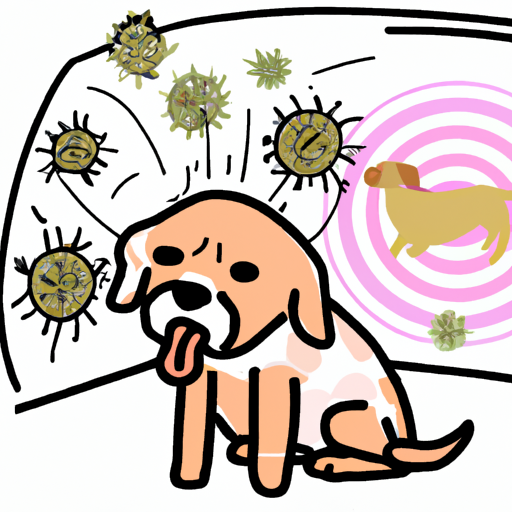Understanding Kennel Cough
As a caregiver to your furry friend, it’s important to understand the ins and outs of their health. One common ailment that might plague your pet is kennel cough. Imagine a cold in humans, except for dogs. That’s what kennel cough is. It’s a highly contagious respiratory disease, characterized by a strong, hacking cough that may sound as if your dog is choking or gagging.
Causes of Kennel Cough
Just as your own cold can come from various viruses and bacteria, kennel cough can also be caused by multiple factors. In the dog world, the most common culprits are:
- Bordetella bronchiseptica: A bacterium frequently associated with respiratory disease in dogs. It’s the most common cause of kennel cough.
- Canine Parainfluenza virus
- Canine Adenovirus type 2
These pathogens are airborne and can be spread through:
- Direct contact: If your dog interacts with an infected dog, they may catch the disease.
- Contaminated surfaces: If your dog touches or uses items that were previously touched by an infected dog.
- Airborne droplets: Dogs can contract the disease from breathing in the bacteria or virus from the air.
Symptoms of Kennel Cough
Understanding the symptoms of kennel cough can help you identify it early in your pet. Typical symptoms include:
- A strong, hacking cough
- Sneezing
- Runny nose
- Loss of appetite
- Lethargy
If you notice these signs, it’s time to see a vet.
Preventing Kennel Cough
There are several strategies you can implement to help prevent your dog from catching kennel cough:
- Vaccinate: There are vaccines available for some of the major components of kennel cough, like the Bordetella vaccine.
- Maintain cleanliness: Keep your dog’s living area clean and well-ventilated.
- Isolate sick dogs: If your dog is sick, keep them away from other dogs.
Treatment for Kennel Cough
Treatment for kennel cough usually involves:
- Rest: Let your dog rest. This will help their immune system fight off the infection.
- Medication: Antibiotics can be used to fight the Bordetella bacterium, and cough suppressants can help with the symptoms.
- Hydration: It’s important to keep your dog hydrated to help them recover.
| Treatment | Description |
|---|---|
| Rest | Let your dog rest and recover |
| Medication | Antibiotics and cough suppressants |
| Hydration | Keep your dog hydrated |
Frequently Asked Questions
1. Can humans get kennel cough?
No, kennel cough is typically a disease that affects dogs.
2. How long does kennel cough last?
Kennel cough usually lasts between 10-20 days.
3. Can kennel cough be prevented?
Yes, through vaccines and cleanliness, it can be prevented.
4. Should I take my dog to the vet if they have kennel cough?
Yes, it’s advisable to seek professional help to ensure your dog gets the right treatment.



